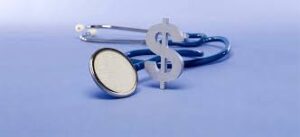Lock in and improve Ghana’s health taxes: there should be no backing down on the fight for public health!
I have become aware of calls from the Food and Beverages Association of Ghana (FABAG) for the removal of Ghana´s excise taxes on health-harming products such as tobacco, alcohol, and sugar sweetened beverages (SSBs). The FABAG referred to them as “nuisance taxes" (the Onua FM, 2025, story by Laud Nartey - February 17, 2025 9:28 am, and Ghana Web - Business News of Monday, 17 February 2025, refer).
I am compelled to state that FABAG’s characterization of excise taxes on harmful products as “nuisance taxes” is incorrect and misleading. Such a misrepresentation - coming from an entity with clear financial interests - appears driven more by profit motives than by factual or public health concerns. Not only is this mischaracterization deceptive, but it is also historically and conceptually flawed.
The term "nuisance tax" originated in early 20th-century U.S. tax discourse to describe minor, petty, or bureaucratically burdensome taxes - typically levies on low-value transactions, often difficult to collect and enforce. These included taxes on items like playing cards, cosmetics, or minor sales, which had little public health or societal justification.
Excise taxes on health-harming products, have never fallen under this category. Instead, they are classified as health taxes (or sin taxes - a dated terminology) - so levied to curb excessive consumption of harmful products, reduce healthcare burdens, generate revenue and protect public health. Globally, such taxes have proven effective in reducing smoking rates, alcohol-related harm, and relatively recently, consumption of foods implicated in diet-related diseases like obesity and diabetes. To cynically call health taxes a “nuisance” is disingenuous, as it ignores their well-documented role in deterring harmful consumption patterns, in reducing non-communicable disease risk and saving lives
Ghana’s excise taxes on tobacco, alcohol, and SSBs align with international best practices and are recommended by the World Health Organization (WHO), the World Bank, United Nations Development Programme (UNDP) and the Economic Community of West African States (ECOWAS) Directive on the Harmonization of Excise Duties on Tobacco Products. Also, numerous public health experts including health economists have lauded the enactment of such policies. If anything, the real nuisance is the devastating burden of non-communicable diseases, rising healthcare costs, and the industry’s attempt to prioritize profits over public health. Ghana must not bow to industry pressure. Health taxes are not trivial; they are a public health intervention by the government
 Amos Laar, Ph.D
Amos Laar, Ph.DFABAG has indicated that their “…brief cost-benefit analysis of the tax law on domestic industry capacity and productivity since its introduction, reveals that the government has lost so much. They claim that sales of affected products have dropped by over 50% and that the net revenue generated by the government has actually declined rather than increased.
This statement is partially inaccurate and misleads. First, data from the Ghana Revenue Authority (GRA) contradict FABAG’s claim. Government revenue from excise duties on tobacco, alcohol, and SSBs has actually increased since the tax was introduced. For instance, the total excise tax revenue from SSBs for 2012 was 228.62 million, 406.02 million in 2017, and 735.46 million in 2022. Following the introduction of the new tax in April 2023, the revenue was recorded as 1,325.57 million in 2023 (Source: GRA 2023).
Even if tax revenue from these products declined, it is not necessarily a loss, it is in fact a win for public health. Excise taxes are designed not just for revenue generation but also for public health protection. For instance, if sales of health-harming products such as SSBs, tobacco, and alcohol have indeed dropped by 50%, as claimed by FABAG, that is a public health win, not a policy failure. The very purpose of excise taxes on harmful products is to discourage excessive consumption and reduce their negative impact on public health – e.g. reducing prevalence of NCDs such as diabetes, and hypertension. And so, the claimed reduction in sales suggests that Ghanaians may be switching to healthier choices, which will lead to long-term savings on national healthcare costs.
Indeed, our assessment of the early effects of a sugar-sweetened beverage tax on consumer
behaviour and public perceptions revealed that over 80% of the 2,468 Ghanaians we interviews, had noticed an increase in the price of SSBs since April 2023 when the tax was implemented. In response to the tax’s effect on product prices, 49.6% of respondents reported reducing their SSB purchases, and 31.3% reported switching to water or fresh fruits. While there was an almost even split in awareness among respondents of the SSB tax itself (47.1% aware vs. 52.9% unaware), majority of respondents (71.2%) still believed the tax was a good measure to improve public health.
Instead of resisting these health taxes, industry players should innovate and pivot towards the production and promotion of healthier alternatives. The demand for water, sugar-free beverages, and natural fruit-based drinks is rising, and companies that embrace this shift will not only adapt to changing consumer preferences but also contribute positively to national health outcomes.
Health taxes work, and Ghana must stand firm.
While the appeal by FABAG aligns with industry interests, it must be evaluated through a broader lens that prioritizes public health, economic sustainability, and national development. I would like to believe that FABAG has the interest of their clients (particularly the Ghanaian consumer) at heart.
Ghana is facing an alarming rise in obesity, diabetes, hypertension, and cardiovascular diseases, largely driven by the excessive consumption of unhealthy foods (including SSBs). Maybe FABAG needs to be reminded that obesity rates are skyrocketing, with 16% to 46% of children (ages 6–15) and 25% to 47% of adults (15+) classified as overweight or obese. Data from the Ghana Demographic and Health Survey show that, among women of reproductive age, obesity surged from 10% in 1993 to 40% in 2015, reaching 50% in 2022. NCDs now account for 43% of all deaths annually, emphasizing the urgent need for policy interventions such as SSB taxes to curb unhealthy dietary trends.
The economic burden of obesity in Ghana is also immense, with estimates reaching billions of Ghanaian Cedis. A study by Stella Lartey et al. (2023) found that overweight individuals have 75% more inpatient admissions, while those with obesity have 159% more. The cost per hospital admission rises from $35 for healthy-weight individuals to $78 for overweight individuals and $132 for those with obesity. With 60% of these costs covered by the National Health Insurance Scheme (NHIS), the financial strain on government resources is unsustainable. When scaled to the older adult population (50+ years), the direct healthcare costs of overweight and obesity reach $121 million - nearly double the cost for those at a healthy weight. Beyond the financial burden, obesity also reduces life expectancy and quality-adjusted life years (QALYs), with obese women losing four years of healthy life compared to their healthy-weight counterparts.
The unchecked growth of Ghana's soft drink market exacerbates the crisis. In 2021, the market was valued at $2.17 billion, with per capita consumption at 51.2 liters per person. Studies we have conducted in Ghana highlights widespread accessibility, aggressive advertising, and celebrity endorsements, fueling high consumption rates.
We conducted a national survey involving 7,794 residents of Ghana and found that 33% of them drink SSBs multiple times a week, over 10% consume them daily, and nearly 30% drink two or more 330mL cans per sitting. Despite high SSB consumption, public awareness and support for taxation policies are strong. This survey revealed that 84.3% of respondents expressed concerns about obesity and NCDs, and 68% supported SSB taxes, with support increasing to 80% if the revenue funds public health initiatives.

International evidence highlights the effectiveness of health taxes. South Africa saw a 28.9% drop in sugary drink purchases after implementing a sugar tax, while the UK's Soft Drinks Industry Levy prompted manufacturers to reformulate products, reducing sugar content. Mexico's sugar tax led to a 12% decline in sugary drink consumption, with the most significant impact among lower-income households.
Concerns about economic harm to manufacturers are largely unfounded. Countries like Thailand and the UK have shown that health taxes drive industry adaptation rather than losses, with companies reformulating products to comply with regulations, ultimately fostering a healthier market without significant economic drawbacks.
The evidence is clear: the growing burden of diet-related diseases demands decisive action. Implementing SSB taxes, alongside other public health policies (such as front of pack labelling, restriction of marketing of health-harming products and public food procurement policies) are urgently needed. Ghana’s excise tax policy should be guided by scientific evidence, economic prudence, and long-term national health goals - not industry demands. Removing these taxes would undermine efforts to combat NCDs, increase healthcare costs, and weaken public health initiatives. Instead, Ghana should reinforce public awareness, encourage or compel businesses to reformulate unhealthy products to healthier options, and ensure tax revenues are effectively reinvested in the health sector. The upcoming National Food-Related Fiscal Policy for the Promotion of Healthy Diets, which is underpinned by the Ghana Double-Duty Nutrient Profiling System, will further support this transition.
From the foregoing, eliminating excise taxes would be a dangerous, regressive step - one that shifts the weight of corporate profits onto the shoulders of Ghanaian lives. It would inflate healthcare costs, deepen public health crises, and sacrifice long-term national well-being at the altar of industry greed. Ghana cannot afford to surrender to profit-driven narratives and self interest. Instead, it must stand firm on evidence-based fiscal policies that protect its people, fortify its healthcare system, and ensure that economic progress does not come at the cost of public health.
Source:
Amos Laar, Ph.D
Professor of Public Health Nutrition, School of Public Health, University of Ghana, Accra, Ghana
Sources consulted in drafting this paper
A4H-HD4HL Coalition. (2022). Position Statement: SSB Tax Implementation in Ghana. Advocating for Health and Healthier Diets for Healthy Lives Coalition.
Global Data -PLC. Global Data PLC. June 2022 Ghana: Soft Drinks Market Databook 2022. Overview of Soft Drinks Market Performance 2022.
Laar, A. (2021). The role of food environment policies in making unhealthy foods unattractive and healthy foods available in Africa. EClinicalMedicine, 36.
Laar, A., Amoah, J. M., Massawudu, L. M., Pereko, K. K., Yeboah-Nkrumah, A., Amevinya, G. S., ... & Sandaare, S. (2023). Making food-related health taxes palatable in sub-Saharan Africa: lessons from Ghana. BMJ Global Health, 8(Suppl 8), e012154.
Laar, A., Barnes, A., Aryeetey, R., Tandoh, A., Bash, K., Mensah, K., ... & Holdsworth, M. (2020). Implementation of health
Onua FM. (2024). FABAG tells Finance Minister to remove all nuisance taxes. Onua Online. Retrieved from https://www.onuaonline.com (https://3news.com/business/fabag-tells-finance-minister-to-remove-all-nuisance-taxes/?utm_source=chatgpt.com)
Remove excise taxes on fruit juices – FABAG appeals to government- Ghanaweb Business News of Monday, 17 February 2025 Source: www.ghanaweb.com (https://www.ghanaweb.com/GhanaHomePage/business/Remove-excise-taxes-on-fruit-juices-FABAG-appeals-to-government-1971824?utm_source=chatgpt.com)
Tandoh, A., Amevinya, G., Yeboah-Nkrumah, A., Nanema, S., Adams, A. S., Kombat, A., Nuer, D., Agyemang, E. O., Agyekum, P., Mpereh, M., Sandaare, S., & Laar, A. (2025). Early effects of a sugar-sweetened beverage tax on consumer behaviour and public perceptions: Evidence from a national survey.
World Bank Group. (2023). SSB Taxation to Promote Public Health. World Bank Sugar-Sweetened Beverage Tax Database. Retrieved from https://ssbtax.worldbank.org
World Health Organization. (2022). WHO Manual on Sugar-Sweetened Beverage Taxation Policies. Geneva: WHO. https://www.who.int/publications/i/item/9789240056299?utm_source=chatgpt.com
Comments